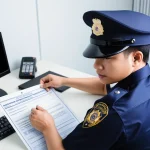Document Authentication and Apostille Guide for Filipinos: Navigating International Document Verification Requirements
Document authentication and apostille processes represent critical steps in preparing Philippine-issued documents for international use, whether for overseas employment, immigration, education, business transactions, or legal proceedings in foreign countries. The complex landscape of international document verification requirements often confuses Filipino citizens who must navigate multiple government agencies, understand varying destination country requirements, and ensure proper authentication procedures that will guarantee document acceptance by foreign authorities.
The distinction between authentication and apostille procedures stems from international treaties and bilateral agreements that determine how different countries recognize and verify foreign documents. Understanding these distinctions becomes essential for Filipinos who must ensure their documents meet specific destination country requirements, as using the wrong verification process can result in document rejection, delayed transactions, or failed applications that can have serious consequences for time-sensitive matters such as employment opportunities, educational enrollment, or legal proceedings.
Philippine government agencies have established comprehensive systems for document verification that serve both domestic and international purposes, but navigating these systems requires understanding the specific roles of different agencies, the sequence of authentication steps, and the particular requirements that various destination countries impose on Philippine documents. The investment in proper document authentication protects Filipinos from document rejection while ensuring compliance with international standards that facilitate legitimate transactions and legal recognition abroad.
Understanding the Philippine Document Authentication System
The Department of Foreign Affairs serves as the primary agency responsible for authenticating Philippine documents for international use, operating through a structured system that verifies document authenticity before providing official certification that foreign authorities will recognize and accept. The DFA authentication process involves multiple verification steps that examine document origins, confirm issuing agency legitimacy, and apply security features that prevent fraud and protect document integrity throughout international transactions.
The authentication system distinguishes between documents issued by national government agencies, local government units, educational institutions, and private organizations, with each category requiring specific verification procedures that reflect the different levels of government oversight and security protocols associated with various document types. Understanding these categorizations helps applicants prepare appropriate supporting documentation and follow correct authentication pathways that correspond to their specific document types and intended uses.
Regional DFA offices throughout the Philippines provide authentication services that serve local populations while maintaining consistent standards and procedures that ensure uniform authentication quality regardless of processing location. However, processing times, appointment availability, and specific procedural requirements may vary among regional offices, making advance planning and location selection important considerations for applicants with flexibility in where they can process their authentication requests.
The digital transformation of DFA services has introduced online appointment systems, electronic status tracking, and digital payment options that have improved accessibility and convenience while maintaining the security standards essential for international document verification. These technological improvements have particularly benefited applicants in remote areas who previously faced significant travel requirements to access authentication services, though some aspects of the authentication process still require physical document submission and verification.
Apostille vs Red Ribbon Authentication: Critical Differences
The apostille process applies specifically to documents intended for use in countries that are signatories to the Hague Convention, which established simplified international document verification procedures that eliminate the need for multiple levels of authentication while maintaining security standards that protect against document fraud. Countries that participate in the Hague Convention accept apostille certificates as sufficient verification of document authenticity, streamlining international transactions and reducing bureaucratic barriers for legitimate document users.
Red ribbon authentication represents the traditional document verification process used for countries that are not signatories to the Hague Convention, involving multiple levels of government verification that may include authentication by the issuing agency, DFA verification, and subsequent authentication by the destination country’s embassy or consulate in the Philippines. This multi-step process provides comprehensive verification but requires more time, expense, and coordination among multiple agencies and diplomatic missions.
The choice between apostille and red ribbon authentication depends entirely on the destination country’s participation in the Hague Convention, making accurate determination of destination country status essential for selecting the correct authentication process. Using the wrong authentication method results in document rejection and the need to repeat the entire authentication process with the correct method, causing delays and additional expenses that can be avoided through proper initial research and planning.
Some documents may require authentication for multiple destination countries with different verification requirements, necessitating separate authentication processes for each destination or careful planning to ensure that chosen authentication methods will be accepted across all intended jurisdictions. This complexity particularly affects Filipinos with business interests, family connections, or educational plans that span multiple countries with varying authentication requirements.
Preparing Documents for Authentication
Document preparation begins with ensuring that all documents are issued in their final, complete form with all necessary signatures, seals, and security features that authentication agencies will verify during the certification process. Incomplete documents, copies that lack proper certification, or documents with missing security features may be rejected during authentication, requiring applicants to obtain properly issued originals before proceeding with authentication requests.
The timing of document preparation becomes crucial because many Philippine-issued documents have limited validity periods that may expire during extended authentication processes or while documents are being processed by foreign authorities. Planning document issuance timing to account for authentication processing, international mailing, and foreign authority review ensures that documents remain valid throughout the entire process rather than expiring before they can be used for their intended purposes.
Certified true copies may be acceptable alternatives to original documents for certain authentication purposes, but the acceptability of certified copies varies among authentication agencies and destination country requirements. Understanding when certified copies are acceptable versus when original documents are required prevents processing delays and ensures compliance with both Philippine authentication standards and destination country requirements for document verification.
Translation requirements add another layer of complexity to document preparation, as many destination countries require documents to be translated into their official languages before authentication or as part of the authentication process. Professional translation services that specialize in legal and official document translation provide translations that meet the accuracy and formatting standards required for authentication, while ensuring compliance with destination country requirements for translator certification and document formatting.
Department of Foreign Affairs Authentication Procedures
The DFA authentication process begins with document submission either through online appointment systems or walk-in procedures at designated service centers, with appointment scheduling becoming increasingly important as authentication demand continues to grow and processing capacity remains limited. Online appointment systems provide greater predictability and convenience but may require advance planning as popular appointment slots are often fully booked weeks in advance, particularly during peak seasons when overseas employment and educational applications surge.
Document verification procedures involve multiple levels of review that examine document authenticity, verify issuing agency legitimacy, confirm proper signatures and seals, and apply DFA authentication certificates that provide official verification of document status. This verification process protects both document holders and foreign authorities by ensuring that only legitimate documents receive authentication, preventing fraud while maintaining the integrity of the international document verification system.
Processing times for DFA authentication vary depending on document complexity, authentication type, seasonal demand, and the need for additional verification that may require coordination with issuing agencies or other government departments. Standard processing typically ranges from several days to several weeks, with expedited services available for urgent requests that meet specific criteria and justify accelerated processing through additional fees and priority handling procedures.
Quality control measures throughout the authentication process ensure consistent standards and prevent processing errors that could compromise document validity or acceptance by foreign authorities. These measures include multiple verification checkpoints, supervisor review of complex cases, and systematic quality assurance procedures that maintain the reputation and reliability of Philippine document authentication services in international markets.
Consular Authentication and Embassy Requirements
Destination country embassies and consulates in the Philippines provide additional authentication services that may be required for documents intended for use in non-Hague Convention countries, adding another layer of verification that confirms document authenticity according to destination country standards and requirements. Embassy authentication procedures vary significantly among different countries, reflecting their individual security protocols, administrative procedures, and diplomatic policies regarding foreign document verification.
Embassy appointment systems and processing procedures often differ from Philippine government agency standards, requiring applicants to understand and comply with diplomatic mission requirements that may include specific appointment scheduling, documentation requirements, payment procedures, and processing timelines that do not align with DFA procedures. These differences require careful coordination and planning to ensure smooth processing through both Philippine and foreign authentication systems.
Consular fees for document authentication represent additional costs that vary among destination countries and may be subject to currency exchange fluctuations or policy changes that affect overall authentication expenses. Understanding these fee structures and payment requirements prevents processing delays and ensures that adequate funds are available for all required authentication steps rather than discovering unexpected costs during the application process.
Some embassies provide expedited authentication services for urgent requests, while others maintain fixed processing schedules that cannot be accelerated regardless of applicant needs or circumstances. Understanding embassy processing capabilities and limitations helps applicants plan authentication timing appropriately and avoid unrealistic expectations about processing speed that could compromise time-sensitive applications or transactions.
Educational Credential Authentication
Educational documents require specialized authentication procedures that verify both document authenticity and educational institution legitimacy, ensuring that foreign educational authorities can confidently evaluate Philippine educational credentials for admission, credit transfer, or professional recognition purposes. The Commission on Higher Education plays a crucial role in this process by providing institutional verification and educational standard confirmation that supplements DFA authentication procedures.
Transcript authentication involves verification of academic records, grade conversions, course descriptions, and institutional accreditation status that foreign educational institutions require for accurate evaluation of Philippine educational achievements. This comprehensive verification process ensures that Filipino students and professionals receive appropriate recognition for their educational accomplishments while providing foreign institutions with reliable information for decision-making purposes.
Professional license authentication may require coordination between the Professional Regulation Commission, relevant professional boards, and authentication agencies to verify license validity, professional standing, and regulatory compliance that foreign employers or professional organizations require for recognition or employment authorization. This multi-agency coordination can extend processing times but provides comprehensive verification that satisfies international professional recognition standards.
Diploma mills and fraudulent educational institutions create ongoing challenges for legitimate credential authentication, as authentication agencies must distinguish between authentic educational credentials and fraudulent documents that could undermine the reputation of Philippine education and harm legitimate graduates. Enhanced verification procedures for educational credentials help maintain the integrity of the authentication system while protecting the interests of legitimate educational institutions and graduates.
Legal Document Authentication for International Proceedings
Legal documents intended for international court proceedings, business transactions, immigration applications, or other legal purposes require enhanced authentication procedures that ensure compliance with destination country legal standards and procedural requirements. The complexity of legal document authentication often requires coordination between multiple agencies, legal professionals, and authentication specialists who understand both Philippine legal systems and destination country requirements.
Court-issued documents, notarized instruments, and other legal papers may require verification by the Supreme Court, regional trial courts, or other judicial authorities before proceeding to DFA authentication, ensuring that legal documents meet both domestic and international standards for authenticity and legal validity. This judicial verification process protects the integrity of legal proceedings while providing foreign legal systems with reliable verification of Philippine legal documents.
Business registration documents, corporate papers, and commercial certificates require authentication procedures that verify corporate existence, regulatory compliance, and legal standing that foreign business partners, regulatory authorities, or legal systems require for commercial transactions or legal proceedings. The Securities and Exchange Commission and other regulatory agencies play important roles in this verification process by confirming corporate legitimacy and regulatory compliance.
International litigation, arbitration proceedings, and cross-border legal transactions often involve complex document authentication requirements that may include specialized legal translations, expert certifications, and enhanced verification procedures that exceed standard authentication protocols. Legal professionals who specialize in international transactions provide valuable guidance for navigating these complex requirements while ensuring compliance with all applicable legal standards and procedural requirements.
Birth, Marriage, and Death Certificate Authentication
Civil registry documents represent some of the most commonly authenticated documents for Filipino citizens, as birth certificates, marriage certificates, and death certificates are frequently required for immigration, inheritance, family reunification, and other international legal proceedings that require proof of identity, family relationships, or vital events. The Philippine Statistics Authority serves as the primary source for authenticated civil registry documents that meet international standards for vital record verification.
Delayed registration, corrected entries, and amended civil registry documents may require additional verification steps that confirm the legitimacy of corrections or late registrations while ensuring that authenticated documents accurately reflect true vital information. These additional verification requirements can extend processing times but provide enhanced reliability that protects both document holders and foreign authorities from fraudulent or inaccurate vital records.
Name discrepancies between civil registry documents and other official documents create ongoing challenges for authentication processes, as foreign authorities often require consistent name usage across all authenticated documents for immigration, legal, or administrative purposes. Resolving these discrepancies may require legal proceedings, court orders, or administrative corrections that must be completed before authentication can proceed successfully.
Genealogical research and family history documentation may require authentication of multiple civil registry documents that establish family relationships, inheritance rights, or eligibility for citizenship by descent in other countries. These complex authentication requirements often involve coordinating multiple document types and verification procedures that collectively establish comprehensive family documentation for international legal purposes.
Processing Times and Expedited Services
Standard authentication processing times vary significantly depending on document type, authentication method, seasonal demand, and the complexity of verification requirements that may necessitate additional research or coordination with issuing agencies. Understanding typical processing timeframes helps applicants plan authentication timing appropriately while allowing adequate time for unexpected delays or complications that may arise during the verification process.
Expedited processing services are available for urgent authentication requests that meet specific criteria and justify accelerated handling through additional fees and priority processing procedures. However, expedited services may not be available for all document types or authentication methods, and expedited processing cannot overcome delays caused by missing documentation, verification complications, or issues that require resolution before authentication can proceed.
Peak season processing delays often occur during periods of high overseas employment deployment, educational application deadlines, or other events that create surges in authentication demand that exceed normal processing capacity. Planning authentication requests to avoid peak periods when possible can result in faster processing and better customer service experiences, though this strategy must be balanced against application deadlines and other timing constraints.
Emergency authentication procedures may be available for exceptional circumstances that justify immediate processing, but these procedures typically require compelling documentation of urgent need and may involve significantly higher fees that reflect the specialized resources required for emergency handling. Understanding the criteria and procedures for emergency authentication helps applicants determine when such services are appropriate and available.
Quality Assurance and Document Security
Security features embedded in authenticated documents include specialized papers, official seals, security inks, and other anti-fraud measures that protect document integrity while providing foreign authorities with reliable methods for verifying document authenticity. Understanding these security features helps document holders protect their authenticated documents from damage or alteration that could compromise their validity for international use.
Document storage and handling procedures become crucial after authentication, as damage to security features, exposure to environmental conditions, or improper handling can compromise document validity and require re-authentication that involves additional time and expense. Proper storage techniques protect authenticated documents while maintaining their integrity throughout extended international processing periods.
Verification databases maintained by authentication agencies allow foreign authorities to confirm document authenticity through secure online systems that provide real-time verification without requiring direct contact with Philippine agencies. These digital verification systems enhance security while improving convenience for foreign authorities who must verify large numbers of Philippine documents for various international purposes.
Fraud prevention measures throughout the authentication system include background checks on applicants, verification of supporting documentation, coordination with law enforcement agencies, and systematic monitoring for fraudulent activity that could compromise the integrity of the authentication system. These prevention measures protect both legitimate document holders and foreign authorities while maintaining the reputation and reliability of Philippine document authentication services.
Document authentication and apostille processes represent essential services that enable Filipinos to participate fully in international education, employment, business, and legal activities that require verified documentation. Success in navigating these complex systems depends on understanding specific requirements, planning appropriate timing, and ensuring compliance with both Philippine procedures and destination country standards. The investment in proper document authentication provides long-term benefits that facilitate international opportunities while protecting against document rejection and related complications. By approaching authentication as a strategic component of international planning rather than simply a bureaucratic requirement, Filipinos can ensure their documents meet the highest standards for international acceptance and legal validity, opening doors to global opportunities while maintaining compliance with all applicable authentication requirements and international standards.


